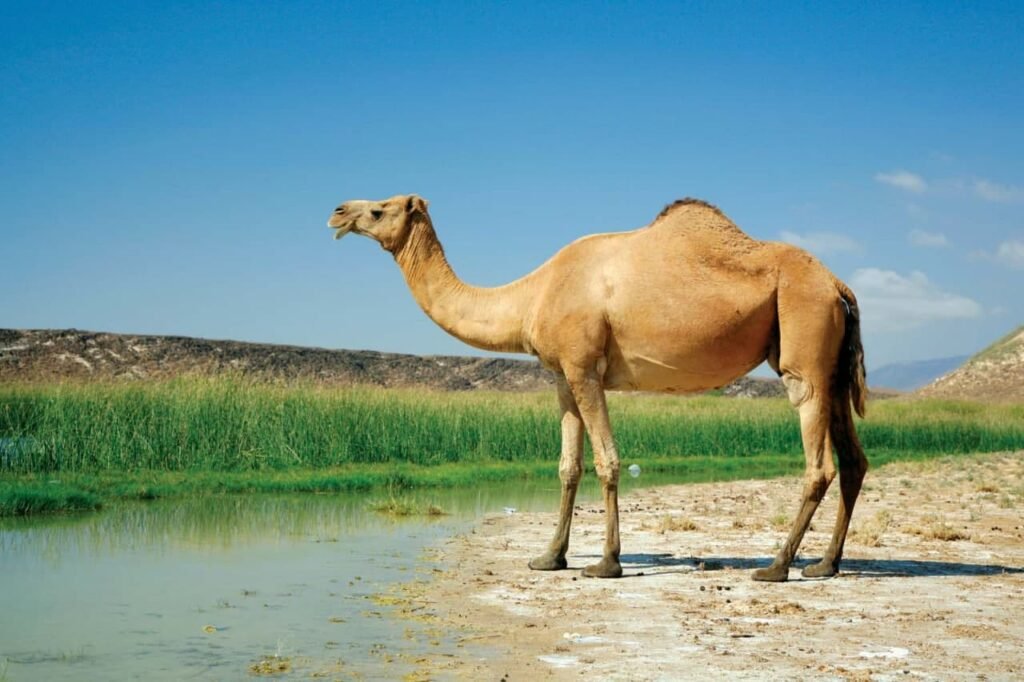Camels are animals who have great control over their thirst and can even survive for weeks without even drinking a sip of water. As per new research, a secret ingredient has been found that helps the camel’s body in achieving this amazing ability.
Camels have some interesting Facts about their Bodies!!
Readers, we all know some of the facts about camels body that helps it to store water for such a long time such as:
- Camel’s have several biological ways to serve such needs: they have large and tangled bodies that can lay hold of water in the air leaving their bodies, moreover modified blood that can withstand the dehydration for long.
- Camels generally gulp down water in a matter of minutes and hence keep slowly absorbing water to avoid osmotic shock; in addition to it, camels’ body temperature also fluctuates from 31degrees C to 41 degrees C to reduce sweating.
In the Human body, kidneys shift gears to preserve moisture in the body when there is a shortage of water. Tubules called Cortex are the area where the water is filtered and hence it is moved into the medulla where the ions, from dissolved salts, are pumped across membranes to create imbalance and which forces the portion of water to get into blood and remaining is carried away as urine.
But in Camels’ bodies, this water is taken up and it is concentrated to such a level that our body could never manage. In the study examining the gene of cells of Arabian Camel’s kidney, a research team had compared those from dehydrated camels and camels’ who had recently felled up water.
Alvira Irazoz, the head of the research team said, “We have identified hundreds of genes and proteins that importantly changed in cortex and medulla of dehydrated and rehydrated camels than controls.”
One of the things that were observed was that many of the genes that changed expression in dehydrated camels be involved in suppressing fatty substance cholesterol in their kidney cell.

Alvira Irazoz and her team members measured the amount of cholesterol in the kidney plasma membrane and compared it to controls. It is found after this that dehydrated camels have less cholesterol in their kidney than rehydrated ones.
One more observation was that the genes coding for transporting ions and water channel across the cell membrane was also expressed more in kidney cells of dehydrated ones. These findings support teams’ suspicion that dehydration-induced cholesterol suppression allows the camel to depend on more water in their kidneys.
“A decrease in the amount of cholesterol in the membrane in kidney cells would facilitate the movement of solutes and water across the kidneys various parts and this is the process that is required to reabsorb water and produce the highly concentrated urine, avoiding water loss,” this statement was explained by Alvira Irazoz and neuroendocrinologist Benjamin Gillard of the University of Bristol.
In these changing climatic conditions where Earth is rapidly moving towards Earth warming, these livestock animals which are capable of enduring such tough conditions are of more importance. Arabian Camels (Camelus dromedarius) have already supported millions of people with their domestication over 3000 years. These camels provide clothing, shelter, and meat in various parched parts of the globe.
About climate change and desertification that can be used to evaluate how various species would adapt to an already changing environment.
A similar analysis is being done on Camels’ brains by researchers and hence they also plan to look at genetic expression to severe dehydration in other mammals like Jerboa too. You can see the full study published in Communications biology.
